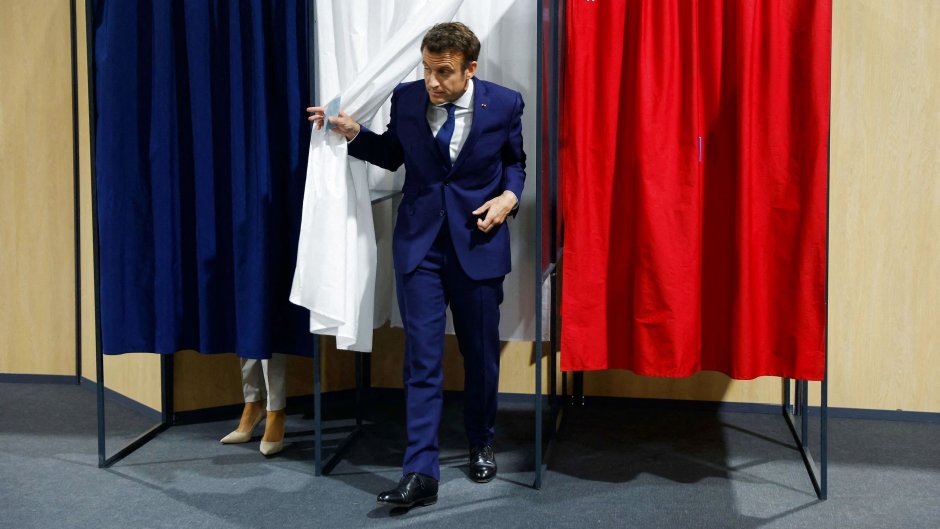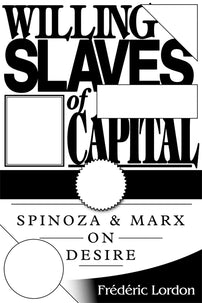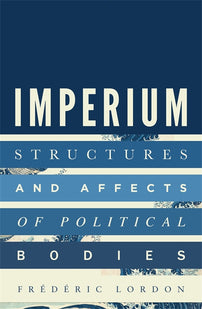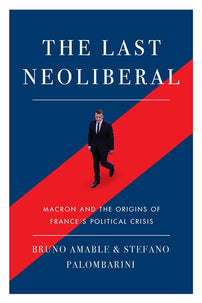Electoral fraud
What is left for the left after the reelection of Emmanuel Macron in France? According to Frédéric Lordon, the French election of 2022 will not have been totally in vain if it at least allows us to disengage ourselves from electoral belief. In relation to its purpose, which is to ‘bring politics to life’, election is a fraud.

Let me be clear: it is not a question of saying that there was fraud in the election. It’s saying that the election is a fraud.
This is a very complicated story because, in politics, it is difficult to do without institutions, and therefore some form of representation. So, some form of designation – of election. But what is politics when it is not simply government policy? Politics is the collective in action. And what is an election (at least ours)? An election is the fragmentation of political subjects, transformed into atoms by entering the voting booth. Under these conditions, despite claiming to be the most complete expression of politics, election is only its disfigurement. In relation to its purpose, which is to ‘bring politics to life’, election is a fraud. By definition, where there is an election there is no more politics, except of a mutilated kind. In any case, no more politics that is not institutional, no living politics. Thought experiment: say that a great event happens in the streets, a big and powerful movement that opens a deep crisis. An election is organised to draw the ‘political outcome’: the thing dies. It’s unavoidable. Just as there are love-killers, so there are politics-killers: elections.
Where do you go to find living politics? Everywhere but in a polling station: in a march that takes to the streets, in a company when a strike and a general meeting are called, in a university lecture hall that is occupied, on a roundabout of Gilets Jaunes. But, above all, not in a polling booth where, for those who don’t understand this, you find yourself isolated – an individual, cut off from any collective.
The repressed collective and its return
If politics is, above all, the collective in action, election is the repression of this. But, as we know, the repressed regularly ‘returns’. Most often in unrecognisable forms.
When voters say that they base their behaviour on the polls, when they choose a ‘useful vote’, or reproach those who do not want to ‘put up a barrier’ of ‘letting them do the dirty work instead’, it is each time the repressed collective that comes back, invoking figures of interaction or coordination that are unaware of themselves. All these arguments are solecisms in the light of what electoral grammar really is. For interaction only makes sense in the collective. By definition, the grammar of electoral exercise only knows separate individuals, and cuts them off from any contact at the most crucial moment: that of decision. It is therefore absurd to refer to collective coordination in an exercise that forbids this by definition.
Absurd but inevitable. For, although grammatically false, these arguments nonetheless say something true about the essence of politics. They speak of the aspiration of the collective which, from the depths of institutionalised electoral separation, continues to seek its own way – and therefore logically to go round in circles and bang its head on all sides. It is enough to see the state of the first round, not to mention the second.
Does this mean that all elections are futile in principle, at least from the point of view of the left? But first, what is the left? If we define the left as the set of forces that challenge the bourgeois social order, then, except for a miracle, the answer is yes: elections are futile. It goes without saying that, in the ‘democracy’ organised by the bourgeois order, the arrival in power of forces challenging the bourgeois order is like a dream. This is why the annals contain so few experiences of the left coming to power by electoral means alone, at least in Europe. For it is clear that this definition of the left does not include Mitterrand, Jospin, Blair, Schröder, or even Tsipras. Hollande we can treat here as a joke. For the left, elections in bourgeois democracy are like a negative funfair game: ‘you lose every time’. So we look back through history: was the election of Blum a miracle?
But miracles also tell a general truth. An election becomes interesting again if it creates a situation. That is to say, an opportunity that it is up to concrete, collective forces to seize, to do something with – beyond the election itself. In the ‘Blum’ situation, the general strike broke out and 1936 happened. In the ‘Mitterrand’ (non-) situation, nothing. And we see, by difference, what makes the ‘electoral miracle’: the baton being taken up by non-electoral forces. Mélenchon found this tempting – but warned that confrontation with the forces of capital was doomed to turn to his (our) disadvantage without the support of an ‘overthrowing’ movement. The most pernicious thing, in any case, in what we should call the electoral belief, is that it not only fails to see the political mutilation that elections consists of, but it makes us incorporate this habitus of dispossession and passivity to the point of considering that action ceases after the second round – when that’s where it should begin.
In this respect, one can infallibly recognise the ‘intellectuals’ most incapable of thinking about politics by their passionate adherence to the electoral belief. In a second round against Le Pen, they ask Macron to ‘speak out’, to ‘make a strong social gesture’[i] (Thomas Piketty), or even just give ‘proofs of respect’ (Dominique Méda).[ii] And that will be enough for them. We are talking about a Macron who has already organised a ‘great debate’ and a ‘citizens’ climate convention’. That this psychotic is perfectly at ease when it comes to uttering words without any reality content or commitment value, that he has done nothing but this for the past five years, and that he will utter as much as anyone may want for the next five years, is what the believers in ‘electoral democracy’, literally rolling at his feet so that he can tell them stories, will be determined not to see – the very nature of the belief is that it neutralises any learning effect. This is a great benefit for political cynicism: you can do the same thing to people every five years, and they don’t budge an inch. It seems that proletarian abstentionists have understood better than these academics what such trinkets of words are worth in the electoral pantomime.
The impasse builders
The situation of this second round, which has become repetitive in a phase of organic crisis, concentrates the political aporias of the electoral procedure to the highest degree, and throws people into the depths of impasse, disarray and anguish – trying to avoid one evil with no alternative but choosing another evil is a situation capable of driving people mad. They can hardly be blamed for doing the best with it that they can. Even the normally safe strategic line, which would look for the option that leaves the least bad possibilities for resistance and struggle, is becoming less and less clear – in a blind reading, whose programme would we think promised ‘the deprivation of civil rights for those who attack the forces of order’? (Answer: Macron.)
In an article that reeks of complacency, bludgeoning and fear, Le Monde, not content to paint the Islamophobic dispensary of Printemps Républicain as republican (at a time when La Voix du Nord reveals[iii] that some of its members helped Le Pen prepare her debate) investigates the ‘collaboration’ of departmental prefects in case of a victory of the far right[iv], and measures the risks of ‘a piecemeal questioning of the rule of law’. As if, after the systematic whitewashes of the Inspection Générale de la Police Nationale, the new ‘norm’ that citizens must expose their undefended bodies when they go to demonstrate, the treatment of migrants in Calais, and the ‘global security’ law, the ‘rule of law’ had not already been seriously shattered. Le Monde recounted in early March the reception of François Sureau at the Académie Française[v], but, by mid-April, had forgotten everything this new member was saying about the state of public liberties. Le Monde, whose model and compass is the Economist, does not remember either that the Economist classified Macron’s France in the category of ‘failing democracies’. So, when and with whom did this ‘piecemeal challenge’ begin?
Trying to convince us (it’s not too difficult) that Le Pen’s programme is ‘fundamentally far right’[vi], Le Monde fails to see how often, for each line examined, one could put in front of it a scurrilous act already committed by the Macron government. Nor how often, too, all kinds of bodies have warned of what would happen to these provisions if they were to ‘fall into the wrong hands’. And these are the wrong hands.
If quality journalism had two cents of dignity, if it had any ethics of informed voting, it would not forget anything, it would remember everything. And then, given that it so much enjoys its magisterial function, it could give itself the pleasure of questioning, magisterially, and for once on the cheap. It has to be said that all those pundits who lecture us on ‘putting up a barrage against the far right’, all those fearful or ‘pedagogical’ conjurors, make one furiously want to disobey them, and have done so for quite some time now. They too will have to answer for it if disaster strikes. As if this were not already odious enough, in the midst of which they have to find a way to impossible decisions.
For we also know what is on the other side: the (anti-)constitutional ruin of the fundamental principle of equality, a completely police and racist state, the Brigade Anti-Criminelle on the loose in working-class neighbourhoods, and fascist militias with an even greater blessing than that given by Paris police prefect Didier Lallement. That is to say, an apparatus of force already fascisised to the core in the hands of an authentically fascist power. In the midst of this disorientation, there are still some reliable reference points. There are groups that are not going to heed an abstentionist lecture. They are in the front line and they know it – but, symmetrically, who would dare to lecture Jérôme Rodrigues? Macronism left him without an eye, others without a hand.[vii] It is better to abandon such ‘lectures’. It is understandable that there are great fears. They are terribly well-founded. It is also conceivable that obstructing the effects by eternally repeating the causes seems an unbearable absurdity by dint of repetition. At the end of the day, in any case, only Le Pen’s voters would be responsible for a Le Pen victory. And Macron, of course. Macron especially. Finally, all those who have built the impasse so well.
[book-strip index="1" style="display"]And now what?
One way or another, April 25 will come. The election of 2022 will not have been totally in vain if it at least allows us to disengage ourselves from the electoral belief. You are less prone to disappointment or suffering when you have harboured fewer illusions – and more able to redirect your investments elsewhere.
The institutions of bourgeois democracy are there, and we have to deal with them, if necessary by playing along. For some people, nothing is more urgent than to follow the presidential election with a rush into the legislative one. When you belong to a political group that lives only by institutional opportunities and is linked to the institutions, that is understandable. It is difficult to ask forces to dismantle the game for which they were formed. But the very nature of institutions is to hold us captive even when we do not aspire to this. Besides, we also know that from time to time a little something can come out of them: a McKinsey report to the senate[viii], a boss who is browbeaten by a committee (rarer), the sudden appearance of social workers thanks to the obstinacy of a fortunately eccentric MP. It will be said that residual gains are better than no gains at all, a big parliamentary opposition better than a small one – yes, okay.
But it will be a high price to pay if it means renewing the same electoral belief, with its blind spots and false hopes, and in an election whose capacity to create a ‘situation’ is clearly very weak. If institutions exist, if they partly impose themselves on us, then at least they no longer prevent us from seeing that politics is fundamentally something other than them. And preparing ourselves for what they will shortly leave us with.
Let’s say that it’s Macron. If Macron is re-elected, an insurrectionary episode is bound to happen. It will happen. But it will take place in the form of a messy insurrection: with fascists on the streets. The most urgent question for the ‘after’ is how to clarify a messy insurrection. How do we steer it to the left – given that we’ll probably have to risk getting involved so as not to abandon the field?
There are not 57 ways of steering a mixed insurgency to the left. First and foremost, you have to anchor it in social struggles, in wage struggles. An insurrection is certainly left-wing when the issues at stake are reformulated in the coordinates of the major conflict, the one that has never been so acute and, paradoxically, has never been so covered up – to the point that the Gilets Jaunes, however admirable their movement may have been, did not completely find their way to this. This major conflict is the capital/labour conflict, the class conflict, with revolutionary potential... and therefore deserted by institutional organisations.
The return of inflation is at least having the collateral effect of putting back at the centre of debate the question of purchasing power, and therefore of wages, and therefore the way in which value added is divided, and what some bosses hang onto, with a few obscene examples being clear enough.[ix] Material misery and moral suffering have two causes: the wage situation, and the backing this has from neoliberal policies. If an insurrection breaks out, it will have to be persuaded to orient itself along these lines.
Not led by an abstract idea, but by a combination of concrete struggles, which will not be lacking given wage conflicts and closures. This would have the virtue of attaining a generality in concrete actions, one that trade-union leaderships reject with all their might for fear of being dragged ‘onto the political terrain’ – and since in capitalist society politics actually has no more central place than class conflict, this would actually mean a conflict against capital. Particular social struggles, as well as the initiatives of climate activists, are only the various expressions of this. At this stage, the far right, which only complete idiots can see as a ‘social’ ally of the working classes, will already have been rejected.
But we now have to reckon with a new and important factor. If, as the Truth and Justice Committee for Adama did with the Gilets Jaunes, as the banlieues did by mobilising massively for Mélenchon, if the neighbourhoods return in force to general politics, if they pour into a possible movement and espouse its material demands – which they share first and foremost – and if they bring their own political agenda to it – which a perspective of emancipation can only adopt in its turn – what will be left for the far right in an uprising that takes on these characteristics?
Since the answer is ‘certainly nothing’, we know what direction to take, if not to clarify a messy insurrection, then at least, if the case arises, to hold a line that is not messy. Seeking in addition to make this the most attractive proposal.
And how do you set about this? Certainly not starting from the institutional political formations. Still less, unfortunately, from the trade-union leadership. More likely, by rebuilding a social front, or more precisely, a front that is both social and political, on the only base that counts – that of the grassroots, neighbourhood networks and concrete conflicts – and thus determined to hold together what should never have been separated. In other words, to turn social struggles into politics.
Le Monde diplomatique blog, 19 April 2022
Translated by David Fernbach
[book-strip index="2" style="display"][i] https://www.lemonde.fr/idees/article/2022/04/08/thomas-piketty-si-macron-ne-fait-pas-d-urgence-un-geste-social-fort-alors-son-arrogance-peut-lui-faire-perdre-un-second-tour-contre-le-pen_6121230_3232.html
[ii] https://www.liberation.fr/idees-et-debats/emmanuel-macron-vous-devez-donner-des-preuves-de-respect-par-dominique-meda-20220412_NQACFBZVW5GMJFHJDKDJCD7BT4/
[iii] https://www.lavoixdunord.fr/1166893/article/2022-04-14/presidentielle-2022-comment-marine-le-pen-se-prepare-au-debat-avec-l-aide-d-elus
[iv] https://www.lemonde.fr/election-presidentielle-2022/article/2022/04/15/partir-c-est-une-solution-rester-c-est-voir-comment-on-peut-agir-les-prefets-face-au-risque-le-pen_6122329_6059010.html
[v] https://www.lemonde.fr/culture/article/2022/03/05/francois-sureau-a-l-academie-francaise-ceux-qui-s-imaginent-gouverner-les-autres-sont-a-plaindre-parce-qu-ils-ne-gouvernent-rien_6116273_3246.html
[vi] https://www.lemonde.fr/election-presidentielle-2022/article/2022/03/31/presidentielle-2022-derriere-la-normalisation-de-marine-le-pen-un-projet-qui-reste-d-extreme-droite_6119942_6059010.html
[vii] https://www.monde-diplomatique.fr/mav/168/DIVRY/60999
[viii] https://www.versobooks.com/blogs/5317-animal-firm
[ix] https://www.lemonde.fr/economie/article/2022/04/13/66-millions-d-euros-la-remuneration-de-carlos-tavares-directeur-general-de-stellantis-choque_6121965_3234.html



